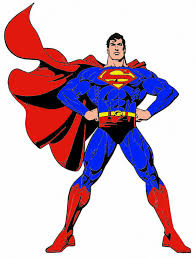中文词源
superman 超人
super-,超级,man,人。
英语词源
- superman
-
superman: [20] The term superman was introduced into English in 1903 by George Bernard Shaw in his play Man and Superman. It was a direct translation of German übermensch, coined by the philosopher Friedrich Nietsche to designate a superior, highly evolved human being that transcended good and evil.
- superman (n.)
- 1903, coined by George Bernard Shaw to translate German Übermensch, "highly evolved human being that transcends good and evil," from "Thus Spake Zarathustra" (1883-91), by Friedrich Nietzsche (1844-1900). First used in German by Hermann Rab (1520s), and also used by Herder and Goethe. Translated as overman (1895) and beyond-man (1896) before Shaw got it right in his play title "Man and Superman" (1903). Application to comic strip hero is from 1938.
So was created ... Superman! champion of the oppressed, the physical marvel who had sworn to devote his existence to helping those in need! ["Action Comics," June 1, 1938]
权威例句
- 1. Joe loved to read "Superman" comics.
- 乔喜欢看《超人》的漫画书。
- 2. Superman's alter ego was Clark Kent.
- 超人的第二自我是克拉克∙肯特。
- 3. The film portrays Gandhi as a kind of superman.
- 这部电影把甘地描绘成一个超人.
- 4. He is a superman in mental faculties [ physical strength ].
- 他在智力 [ 体力 ] 上是个超人.
- 5. Collor nurtured the idea that he was a superman, who single-handedly could resolve Brazil's crisis.
- 科洛尔一直希望自己有超凡能力,凭一己之力就能解决巴西的危机。

